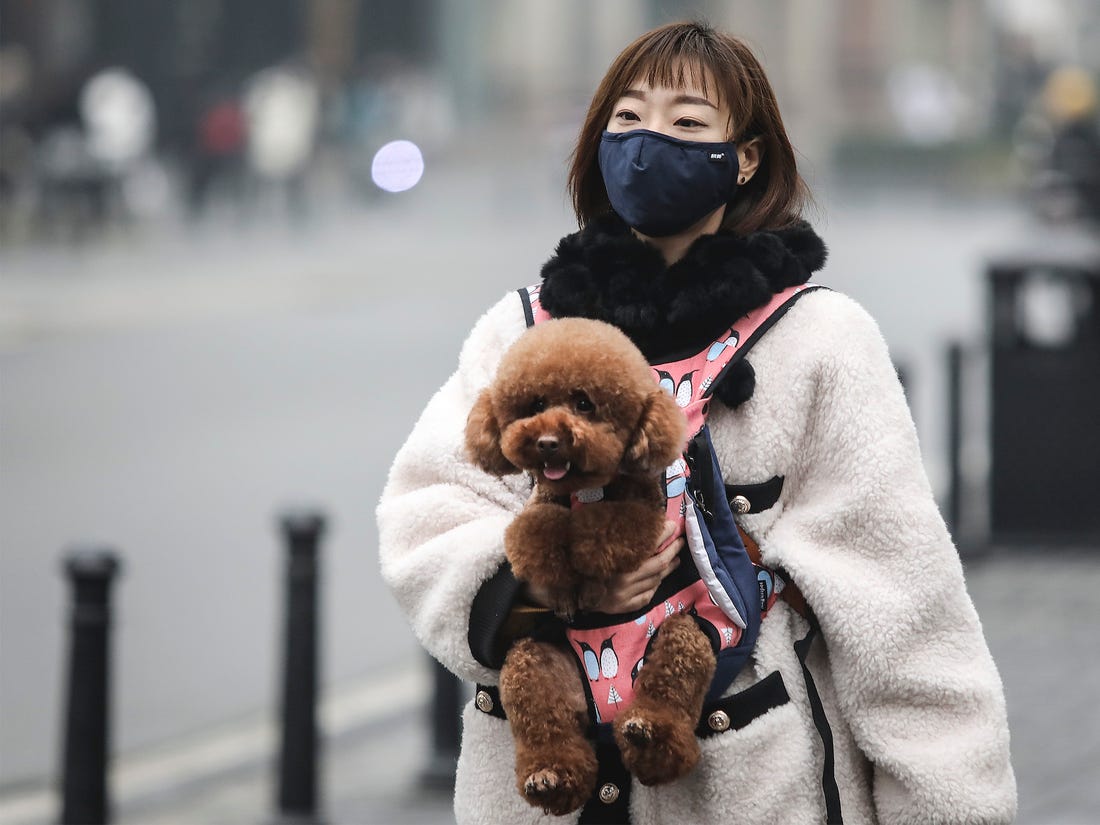Due to the pneumonia outbreak in China, caused by a coronavirus called 2019-nCoV, WSAVA (World Small Animals Vets Association) has published an advisory document for its members, which is intended to answer some questions professionals and pets owners may ask about this health problem.
The outbreak started in December 2019, initially in the Chinese city of Wuhan, and a short time later, person-to-person transmission was confirmed. The exact source of the outbreak is still not known, but it is supposed to be linked to Huanan South China Seafood Market, a seafood and live animal wet market in Wuhan. So far, the animal species from which 2019-nCoV “jumped” hasn’t been identified.
Common coronaviruses which infect dogs and cats (producing a normally non-lethal diarrhoea in dogs and the fatal Feline Peritonitis in cats), DON’T belong to the same family of 2019-nCoV, and are not transmissible to people.
Can 2019-nCoV infect domestic animals?
Currently there is no evidence that pets or other domestic animals can be infected with 2019-nCoV, and, besides, there is no evidence that pets can be a source of transmission of the virus to people.
Should I avoid contact with pets or other animals if I’m sick?
Do not handle pets or other animals when sick. Although there hasn’t been reports of animals infected with 2019-nCoV, there are some other respiratory coronaviruses that may be transmitted and spread from people to animals, so, as a precaution, is a good idea to wear a facemask when handling animals if you are sick.
What should I do if my pet or other animal becomes ill and was around a person with 2019-nCoV?
If your pet or other animal becomes ill, call your veterinarian to let them know you are bringing a sick pet that was exposed to a person with 2019-nCoV. Do not take the animal to the practice until you have had a discussion with clinic staff. Tell them about any contact the animal may have had with someone infected with 2019-nCoV.
If my pet or other animal has been in contact with somebody who is sick, can they spread the disease to other people?
We do not yet know if animals can get infected. We also don’t know if they can get sick from 2019-nCoV. So far, there is no evidence pets or other domestic animals can be a source of infection for people.
What are the concerns regarding pets that have been in contact with people infected with the virus?
While the virus is supposed to have emerged from an animal source, at this moment is spreading only person-to-person, mainly via respiratory droplets which are sprayed when an infected person coughs or sneezes. Once again there is no data or date that dogs or cats become infected with 2019-nCoV.
What should be done with animals in areas where the virus is active?
Despite there have not been reports of pets or other animals getting infected with 2019-nCoV, since there are some other kinds of respiratory coronaviruses that may spread and be transmitted from animals to people and vice versa, till we know more about this specific virus, avoid contact with animals and wear a facemask if you must be around animals or care for a pet. The same way, people diagnosed with 2019-nCoV should stay away from animals in order to avoid the hypothetic risk of transmission to animals, as a precaution.
Should veterinarians start vaccinating dogs against canine coronavirus because of the 2019-nCoV?
There are some coronavirus vaccines for dogs available at the market, but they are supposed to protect against digestive coronaviruses, not against respiratory ones, and as far as we know, there is no evidence of cross-protection against respiratory infections, so in this case the vaccine would make no difference.
Sergio Reina Esteban col 747.
Taken from WSAVA website.



